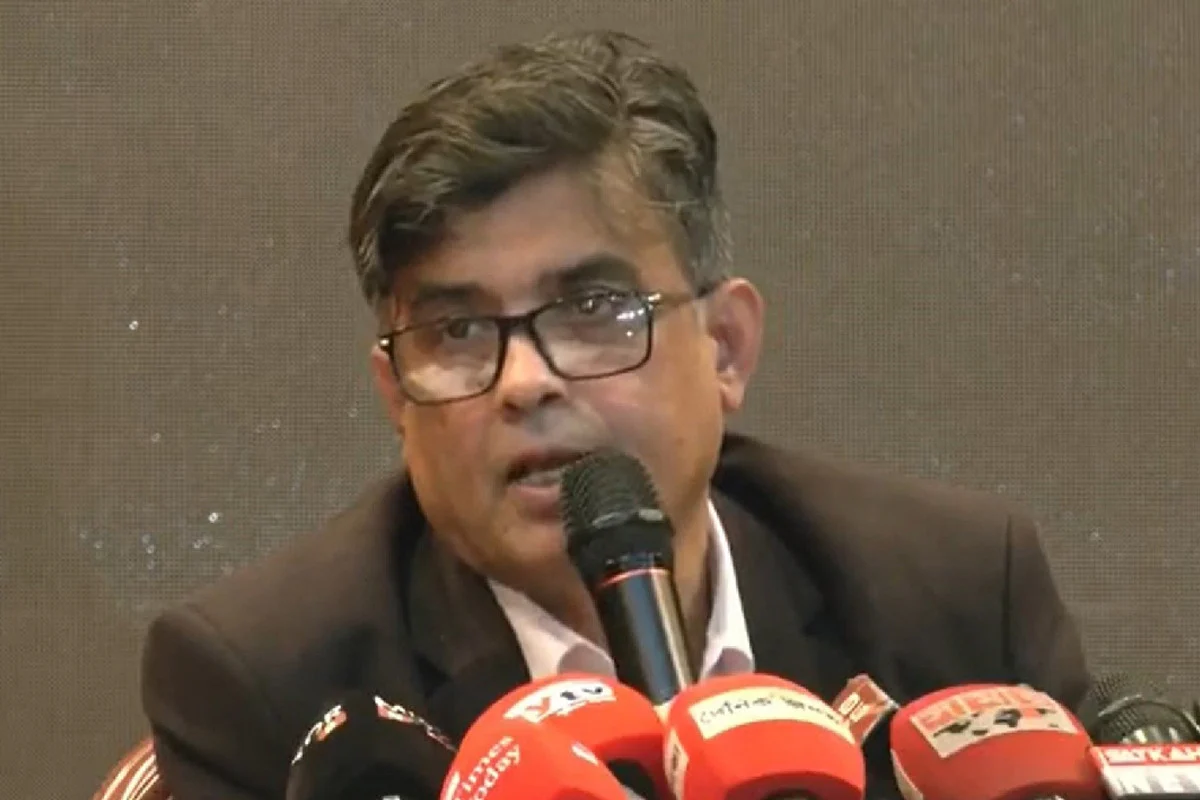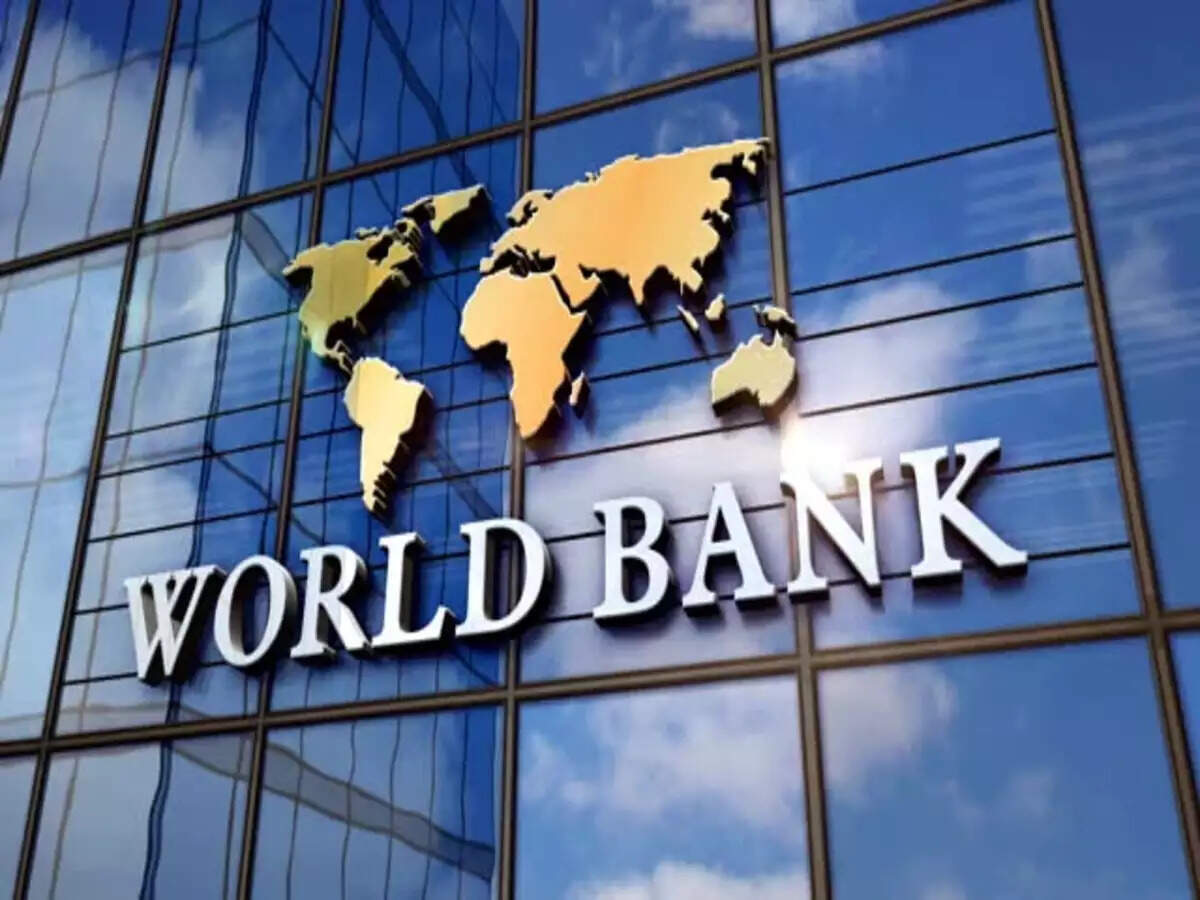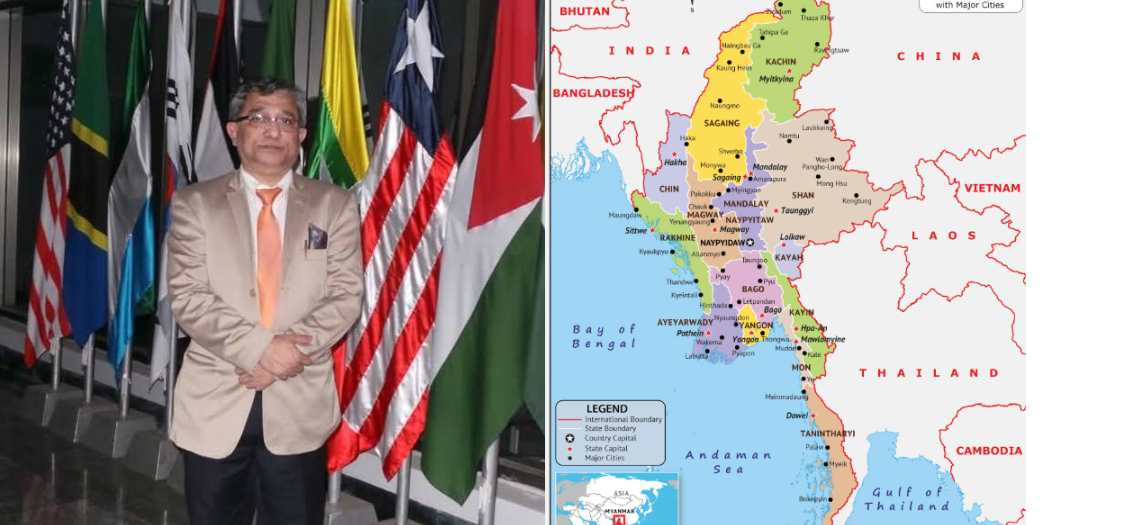Prof. Syed Ahsanul Alam & Muhammad Musa Khan:
Considering Foreign debt is essential for development many govt steps in loan trap if devaluation and corruption is rampant. It’s challenging to carry out development activities without foreign loans. However, the continuous increase in foreign debt has raised concerns among many. The third installment of the IMF loan and consistent remittance inflows, are good news as Bangladesh’s foreign currency reserves have returned to levels seen about a year ago. According to Bangladesh Bank, the gross reserve now stands at $27.15 billion, and by IMF’s BPM6 standards, it is $22 billion.
The economy is intricately linked with imports and exports, remittances, and other factors like foreign debt, reserves, and the value of the dollar. The increase in reserves has brought some relief to the economy, experts say. It’s noteworthy that in 2021, Bangladesh’s foreign reserves hit a record high of $48 billion, a success viewed as exemplary by many countries. However, the economic stagnation caused by the pandemic and the Russia-Ukraine war, global inflation caused a significant increase in the prices of goods in the international market, which had a negative impact on Bangladesh, causing reserves to deplete. On May 12, 2024, The Daily Star reported that for the first time in eleven months of the current fiscal year, foreign reserves had dropped below $19 billion ($18.26 billion). According to the central bank, reserves were $25.27 billion as of May 8.
Regarding foreign debt, it is found that Bangladesh’s foreign debt has been steadily increasing, doubling in the last seven years (BBC News, May 24, 2024). The amount of debt taken for large infrastructure projects, power projects, and various development activities has doubled in just seven years, reaching a milestone of $100 billion. Per capita debt is now about 150,000 taka, up from 100,000 taka three years ago. Although this debt does not need immediate repayment, it is a big burden on the country as it has to be paid in USD including interest in a situation where financial mismanagement brought visible challenges for our economy.
Bangladesh Bank states that foreign debt stands at approximately 23% of total GDP, which is not dangerous, and there is room for more loans. This may not stand valid in a situation of decreasing export short fall of dollars will constrain repayment of loan with interest. However, some economists opines that the foreign debt-GDP ratio is meaningless in the context of Bangladesh. They argue that the debt should be compared to the government’s revenue. A debt-revenue ratio of 200-250% is acceptable, but in Bangladesh, it exceeds 400%, which is dangerous. The solution is to increase revenue. The government might consider increasing taxes, but that is only feasible if the economy provides equal opportunities for everyone. There are still millions of people living hand-to-mouth. These issues must be considered by the government.
It is meaningless that a large portion of the new loans taken by Bangladesh is being used to repay previous loans. Economists have repeatedly warned the govt about this issue. The Center for Policy Dialogue has mentioned that foreign debt is not just a problem for Bangladesh; Latin American countries faced severe issues with foreign debt in the 1980s, and recently, countries like Greece, Sri Lanka, and Ghana have gone bankrupt due to excessive debt. Bangladesh borrows from international organizations like the World Bank and IMF, as well as from countries like Japan, China, Russia, and India. The trend shows both government’s foreign debt and its repayments are continuously increasing making the economy weaker and fragile.
At the end of 2017, Bangladesh’s total debt, including public and private, was $51.14 billion, reaching $100.63 billion by the end of 2023. Despite this, a record foreign loan of over one trillion taka is planned for the 2024-25 fiscal year to implement development plans. In my opinion Bangladesh now need investment for employment generation and feeding the hunger mouths. The government emphasizes that Bangladesh has never defaulted on its foreign loan repayments. Former Planning Minister and current President of the Parliamentary Standing Committee on Finance, MA Mannan, stated that Bangladesh has been borrowing since independence and has always repaid on time. It is unfortunate that borrowing and borrowing and repaying on time with interest is no good news. Because govt do not pay, the citizen and tax payers pay. And most lower middle class tax payers can not come out of the poverty level equilibriums trap.
Regarding the increase in foreign debt, Dr. Ahsan H. Mansur, Executive Director of the Policy Research Institute, remarked that the foreign debt has crossed $100 billion, doubling from a decade ago. Other economists express concern that the country’s earnings are not increasing as per its needs, and issues like corruption money laundering, high expenditures for education and healthcare abroad are adding to the financial burden.
As foreign debt increases, so do the interest and principal repayments each year. Economists fear that future foreign debt repayments could put more pressure on the economy and the tax payers. Also national deficit hits hard the jobless, the poor and the working class. With a tax-GDP ratio of just 7.5%, economists see this as a problem. Ultimately, the burden of foreign debt falls on the people, as the government increases direct and indirect taxes to raise revenue. With high commodity prices, it’s already difficult for ordinary people to make ends meet.
Another important issue is the current reserve situation. After the increase in 2021, reserves have been continuously declining (although there has been a slight increase in the month of June 2024). The country with the highest foreign currency reserves is China, with $3.218 trillion at the end of October 2021. Japan is second with $1.405 trillion, followed by Switzerland with $1.36 trillion. India and Russia are fourth and fifth, with reserves of $642.019 billion and $624.24 billion, respectively. Other countries with strong reserves include Taiwan, South Korea, Saudi Arabia, and Singapore. Analysts state that increased import costs, not matched by export growth, reduced remittances, and devaluation of the taka against the dollar are the main reasons for the decline in reserves. If energy import costs increase, reserves will continue to be strained. Economists agree that a drop in reserves indicates reduced economic strength. Although Bangladesh still has enough reserves to cover three to four months of imports, this is not reassuring. If export earnings continue to fall relative to import costs, and remittances decline, the situation could worsen. If a colossal loan of approximately 7 billion is not promised by China. Bangladesh now has to cover more than seven million dollars in import costs per month. Former caretaker government finance advisor Dr. Mirza Azizul Islam believes that although there is no immediate cause for concern, efforts must be made to restore reserves to previous levels, and luxury imports should be reduced.
It is believed that without IMF’s conditional loan, Bangladesh’s economic situation could have worsened, as many officials do not provide accurate information to please the Prime Minister. IMF conditions have brought some discipline to the banking sector, otherwise, the situation with default loans would have worsened. An anonymous official from Bangladesh Bank mentioned that IMF’s conditions have been beneficial for the country, especially in reforming and ensuring governance in the banking sector.
To keep the nation worry-free and to improve the economy, plans for new mega projects using foreign loans should be temporarily suspended. Essential infrastructure should be built using domestic resources. Unnecessary mega projects may increase corruption and could jeopardize the economy. Additionally, the government should focus on increasing reserves and preventing the devaluation of the taka. But to my personal opinion devaluation of taka will continue as USD rate do not yet match the market rate. I believe BB will slowly adjust the rate to bring stability in the economy. It can be concluded that being reckless with foreign debt is not advisable; bravery is good, but recklessness is not. We hope the govt will seriously consider these issues and take steps to revitalize the economy and minimize the suffering of the poor citizen.
Writer:
Prof. Syed Ahsanul Alam, Geo-Political Economist and Chairman, NBERBD
Muhammad Musa Khan, Columnist and Social Worker











